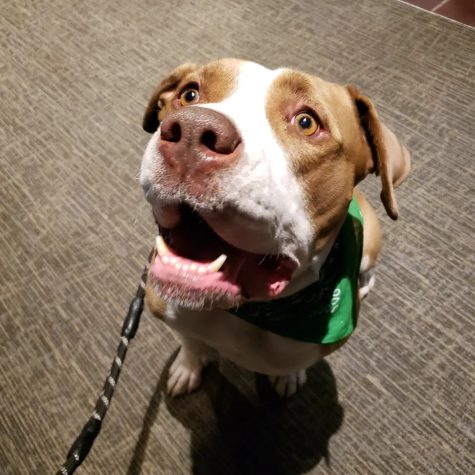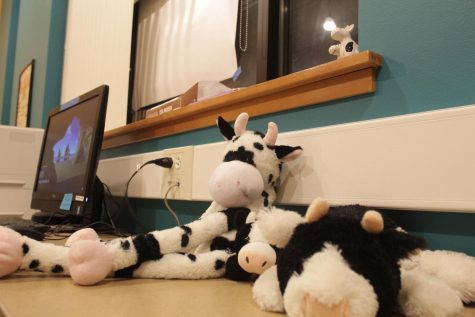Autism Awareness at Whitman
April 7, 2016
Since it is autism awareness month, now is a great time to recognize the presence of autistic students in the Whitman community and how the community can support them.
Because self-disclosure is up to the student in question, it is unknown exactly how many autistic students attend Whitman, but a number of those students take advantage of the support that the Academic Resource Center (ARC), Center fOr Writing and Speaking (COWS), Counseling Center and Residence Life offer. While these programs provide invaluable assistance to a number of autistic students, some students feel that the community could benefit from learning more about autism.
Autism is a neurological condition that gives individuals difficulty with communication and flexible thinking. Autism falls along a spectrum, meaning that every autistic individual faces unique challenges and possesses unique talents. One in 50 young adults has autism. Although several recently developed intelligence tests have demonstrated that many autistic individuals are very intelligent, only 1 in 5 of autistic individuals who attend a four year university are on track to graduate on time.
The ARC currently offers many academic accommodations to autistic students, often working with students entering the college to identify ideal support methods
“In terms of the services we provide to students with autism, it is really individually specified to what that student may need. If a student is working with us and they come in as a first-year, we’ll have a conversation with what that student about that student’s academics were like in high school — what are their strengths, what are their weaknesses — so that we can figure out what accommodations or extra support we would want to put in place so that first-year gets off to a good start,” said Director of Student Success and Disability Support Services Rebecca Frost.
However, many accommodations are not directed specifically at autistic students because many autistic students do not need the academic accommodations or choose to utilize services without self-identifying themselves as autistic.
“In terms of the student’s need, we can offer notetakers in class, smart pens that can audio-record the lecture … testing rooms … and that is just a small sample of things … Right now, we do not do anything that is specifically targeted for students with autism … Some students don’t want to self-disclose that they have autism because they just are who they are,” said Frost.
That being said, Frost is visiting another institution, Landmark College, to learn about the newest developments in how to serve autistic students.
“Landmark College … is founded on serving students with autism, ADHD and some auditory and verbal processing disorders. I am really looking forward to visiting that college and learning what they are doing in terms of an exchange of information so that again, when we do have students with autism … I can make sure I am as informed as I possibly can be,” said Frost.
In addition to the ARC, some autistic students use COWS to write more targeted essays.
“I do use COWS for every single paper, that’s one thing I struggle with,” said CB, a student with autism.
CB has also received advice on how to better-communicate with people from Residence Life and the Counseling Center.
“I can go to my RA, RD, the Counseling Center to be like, ‘I struggle with people and making friends. What do you recommend?’ and I have started to make some really good friends … One of the suggestions they [my RA] had was texting someone and asking if they wanted to have lunch with you … Giving me the push—if you see someone eating lunch alone, just ask if you can join them. The worst they can say is no,” said CB.
Though CB feels that Whitman’s organizations are very able to help autistic students, CB would like Whitman students to be more educated on what autism is.
“I found that on both the social and academic sides, there’s a huge amount of help if you need it … I think it would nice if they did a poster with, ‘here is what all these words mean’ … this is what this [autism] is, making people aware. I just feel that it is not talked about on campus ever,” said CB.
In the meantime, first-year Helena Platt, who has an autistic family member, advised Whitman students accept autistic students’ quirkiness as part of who they are.
“Just let them be,” said Platt.
*names changed for anonymity








